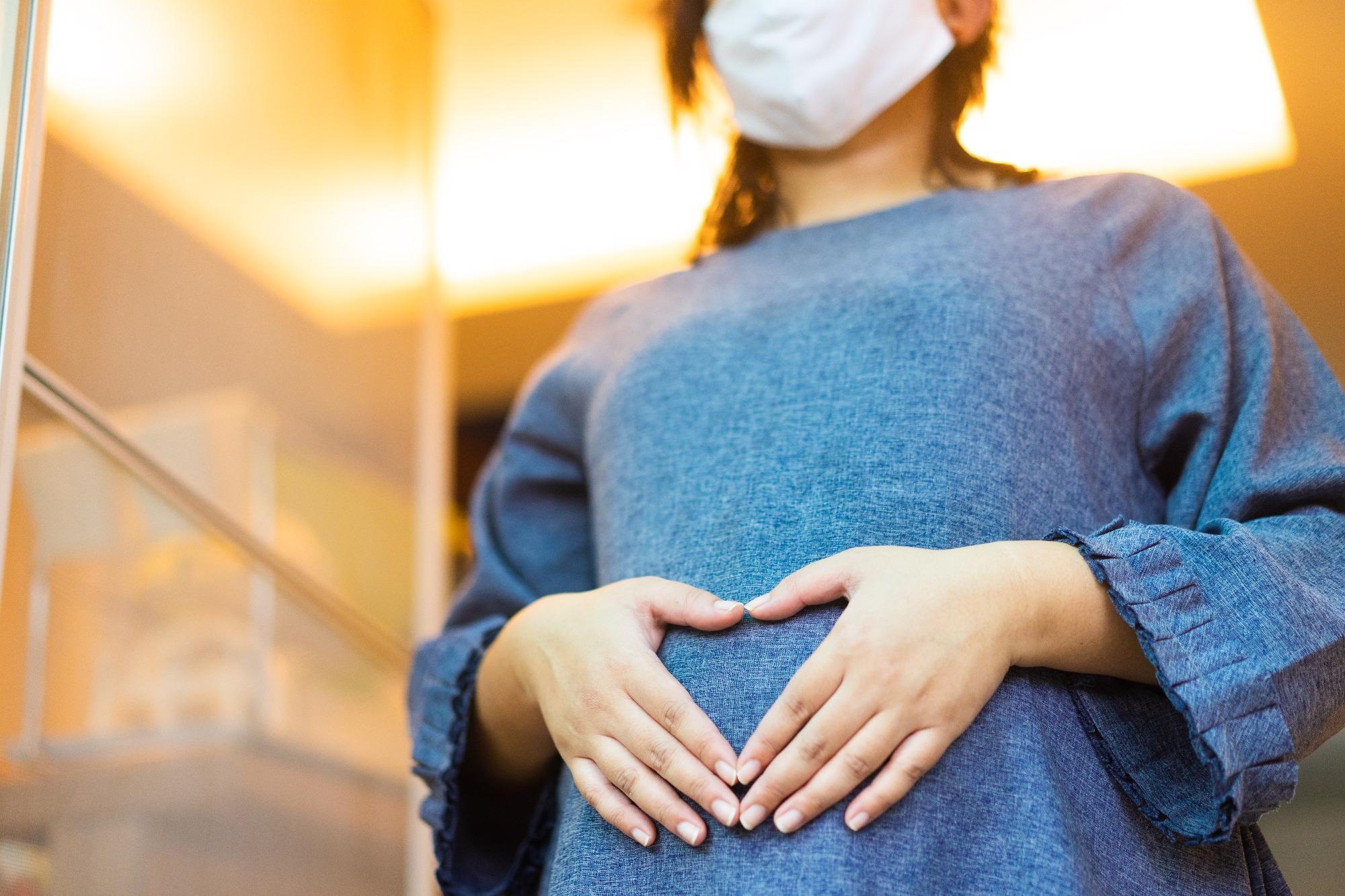
In a recent study posted to the Research Square* preprint server, researchers assessed the characteristics and treatment of coronavirus disease 2019 (COVID-19) in pregnant women.
Various studies have reported that pregnant women are at a higher risk of severe disease outcomes of severe acute respiratory syndrome coronavirus 2 (SARS-CoV-2) infections. Despite this, a significant number of pregnant women are not vaccinated. Therefore, it is imperative to investigate the disease characteristics and treatment of COVID-19 in this population.
 Study: Characteristics and treatment of hospitalized pregnant women with Coronavirus Disease 2019, COVID-19. Image Credit: MIA Studio / Shutterstock
Study: Characteristics and treatment of hospitalized pregnant women with Coronavirus Disease 2019, COVID-19. Image Credit: MIA Studio / Shutterstock
About the study
In the present study, researchers characterized the demographic and clinical aspects, vaccination status, treatments used, and in-hospital outcomes in pregnant women hospitalized due to symptomatic COVID-19.
The team obtained clinical data classified based on age and gender of representative samples of patients hospitalized due to COVID-19. Random numbers were subsequently assigned to the hospitalized patients. Detailed data related to demographics and clinical history were collected from patient medical records. The study involved sampled as well as non-sampled pregnant women aged between 15 and 49 years having complete medical records who were hospitalized between 1 January and 30 November 2021. Non-sampled patients belonging to a particular site were also included in the study if complete medical data was available for the patient.
The analysis of treatment-eligible women was conducted as per the pregnancy status of the patients. The study included all women reporting symptoms of COVID-19, while the study cohort was further limited to the patients who were eligible for remdesivir and systemic steroid treatment. The team defined treatment eligibility as reporting oxygen saturation of less than 94% at the time of hospitalization and receiving oxygen support during admission or the course of the hospital stay.
Information related to the gestational age in weeks during hospitalization was used to classify the pregnant patients by first, second, and third trimester. Additionally, the team collected data regarding pregnancy-related conditions and plurality.
Results
A total of 905 hospitalized pregnant women were included in the study, among which 37% showed COVID-19 symptoms, which comprised 32.7% of treatment-eligible patients. The median age of symptomatic pregnant women was 27.9 years. Furthermore, 32.6% of the symptomatic women reported comorbidities, including 12.5% having asthma and 8.9% having hypertension. The team noted that 70.7% of the pregnant women were hospitalized during their third trimester, while 10% and 19.3% were hospitalized during their second and third trimesters, respectively. Among pregnancy-associated conditions, 10.3% had hypertensive disorders of pregnancy and 5.9% had gestational diabetes.
The vaccination status of 98.5% of the hospitalized patients was known, including 92.9% unvaccinated, 2.2% partially vaccinated, and 4.9% fully vaccinated pregnant women. Among the fully vaccinated pregnant women, none were admitted to the intensive care unit (ICU), and eight gave birth during their hospital stay, including seven full-term live births, one preterm live birth, while one pregnancy was terminated by induced abortion.
Almost 51.9% of the hospitalized symptomatic pregnant women were not pregnant at discharge, among which 88.2% resulted in live births, 3.5% in stillbirth, and 5.4% in spontaneous abortion. The team found no in-hospital deaths among symptomatic pregnant women. Approximately 36% of the symptomatic pregnant women received systemic steroids, while 27.4% received remdesivir. Among the steroid-treated women, 90.1% received dexamethasone, which resulted in 55% preterm live births. Furthermore, 4% of the symptomatic pregnant women were treated with tocilizumab, 1.3% with casirivimab or imdevimab, 1.3% with convalescent plasma, and 0.5% with baricitinib.
Among the treatment-eligible pregnant women, 2.2% received neither remdesivir nor systemic steroids. However, 74.1% of the treatment-eligible women were treated with systemic steroids, including 91.6% treated with dexamethasone, while 61.4% received remdesivir. The team found that treatment-eligible pregnant women aged 35 to 49 years were more likely to receive treatment than those aged 15 to 24 years.
Moreover, non-Hispanic Black women and women belonging to other ethnicities were more likely to receive treatment as compared to non-Hispanic White women. Additionally, it was observed that women with at least one underlying condition had a higher chance of receiving treatment than women without comorbidities.
Conclusion
Study findings revealed that most pregnant women hospitalized for symptomatic SARS-CoV-2 infection were unvaccinated. Moreover, hospitalized pregnant women had higher chances of being treated with systemic steroids and remdesivir as compared to non-hospitalized pregnant women. The present study underscored the need to improve COVID-19 vaccination policies and to include pregnant women in clinical trials.
*Important notice
Research Square publishes preliminary scientific reports that are not peer-reviewed and, therefore, should not be regarded as conclusive, guide clinical practice/health-related behavior, or treated as established information.
- Ahlia Sekkarie, PhD, MPH, Rebecca Woodruff, PhD, MPH, Michael Whitaker, MPH et al. Characteristics and treatment of hospitalized pregnant women with Coronavirus Disease 2019, COVID-19, 09 May 2022, PREPRINT (Version 1) available at Research Square, DOI: https://doi.org/10.21203/rs.3.rs-1522990/v1, https://www.researchsquare.com/article/rs-1522990/v1
Posted in: Medical Research News | Medical Condition News | Women's Health News | Disease/Infection News
Tags: Abortion, Asthma, Convalescent Plasma, Coronavirus, Coronavirus Disease COVID-19, Dexamethasone, Diabetes, Gestational Diabetes, Hospital, Intensive Care, Oxygen, Pregnancy, Remdesivir, Research, Respiratory, SARS, SARS-CoV-2, Severe Acute Respiratory, Severe Acute Respiratory Syndrome, Steroid, Stillbirth, Syndrome

Written by
Bhavana Kunkalikar
Bhavana Kunkalikar is a medical writer based in Goa, India. Her academic background is in Pharmaceutical sciences and she holds a Bachelor's degree in Pharmacy. Her educational background allowed her to foster an interest in anatomical and physiological sciences. Her college project work based on ‘The manifestations and causes of sickle cell anemia’ formed the stepping stone to a life-long fascination with human pathophysiology.
Source: Read Full Article